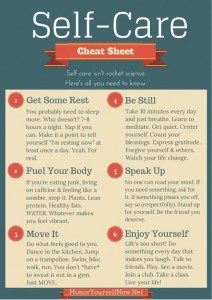Let’s tackle the importance of self-care in recovery and how it can help you stay on track in your commitment to sobriety.
Before Valentine’s Day and all those celebrations about love, let’s first take a look at one of the most important love of all: self-love.
Self-love is important in your recovery, and part of this is self-care. Let’s take a look closer at how self-care can help you stay sober and have a long-term, successful recovery.
A Brave New World
As you complete your addiction rehab treatment, you will have to go back out into the world. Unclouded by drugs and alcohol, you may find yourself with a lot of uncertainty, doubt, anxiety, insecurity, and fear.
After your stint in rehab, you are now put to the test in the real world, where you have to use the life tools you have learned. Being inside rehab, you are in a somewhat secure environment and you are in constant company of a support system with your peers and counselors. Now that you’re out into the “real world” the many real-life challenges can easily overwhelm you. Without the right self-care in recovery, you may easily relapse.
Self-Care in Recovery
Self-care in recovery is crucial. In fact, it is the foundation of your recovery. If you don’t have the skills to take care of your basic needs and your commitment to your recovery, then you will most likely be stuck in a rut and end up relapsing.
Part of your treatment while in a rehab facility is to learn essential life and coping skills. Meanwhile, through after-care, you focus on relapse prevention and how you can use the tools you have learned in your situation and challenges.
Here are the six categories of self-care:
- Physical – Care for your body (such as exercise, eating right, getting enough sleep and relaxation, hygiene, etc.)
- Emotional – Care for your feelings (acknowledging and processing your feelings, adapting to different situations, avoiding distress, etc.)
- Mental – Care for your mind (read a book, learn a skill, meditation, journaling, etc.)
- Spiritual – Care for your spirit, whatever religious affiliations you have or may not have (worship community, working for a cause, appreciating nature, getting in touch with a higher power, etc.)
- Social – Care for your relationships (friends, family, colleagues, classmates, etc.)
- Practical – Maintenance care for your life and basic needs (financial, housekeeping, economy, etc.)
Refine and Apply Self-Care in Recovery
Now that you are out of rehab, it is still important to look back at your recovery plan while you were in treatment. Refining and applying the tools you have learned is an on-going process that you need to do as you live through the challenges and triumphs in your life.
It is also important to remember to not overwhelm and overload yourself. Along with resuming your life with your family, school or work, and other obligations, there’s also the challenges you face as you contend with the triggers in your environment.
Just keep in mind that you should be growing in your life in sobriety, and part of this is continually assessing your self-care methods.
While you may never know what tomorrow brings, at least with proper self-care, you can be prepared to all the possibilities.



nice post…
[…] with the Coronavirus pandemic, keeping your self-care routine a big priority is a must. This is especially true if you are in self-quarantine. This means that […]